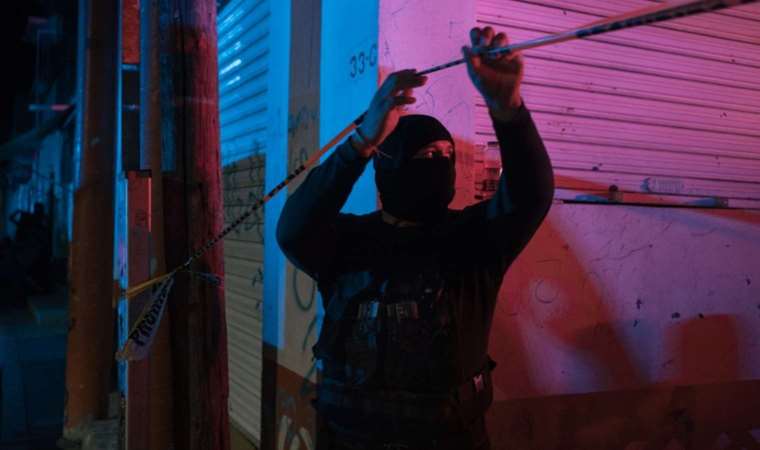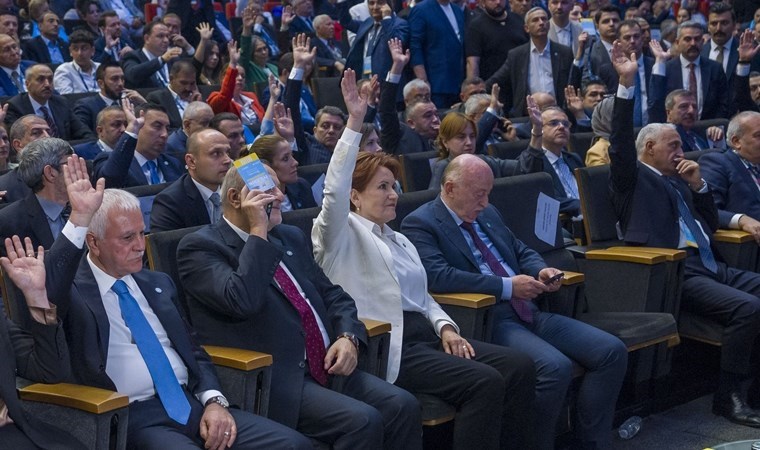"The USA's Mexico Dilemma: Is Military Intervention Looming?"
Republican politicians are increasingly advocating for military action to address the drug and immigration challenges on the US-Mexico border. But is the prospect of a US invasion of Mexico a real possibility?

The American war machine, which has operated under the guise of democracy since the 2003 invasion of Iraq, sees a fresh opportunity on the horizon. Fentanyl-related youth crises and a worsening immigration situation have spurred US Republicans into action. Unlike their Democratic counterparts, who are primarily focused on Ukraine, Republicans have turned their attention to challenges closer to home. Recent debates among Republican candidates for the 2024 elections have prominently featured discussions on the Mexican issue, with all leading candidates expressing support for potential intervention. But what would happen if the United States embarked on such an audacious venture?
AERIAL INTERVENTION: WILL IT WORK?
The United States traditionally initiates its actions against adversaries with airstrikes, often anticipating political outcomes before deploying ground forces. However, such an approach in Mexico may face significant hurdles. The elusive nature of cartel structures, hidden within Mexico's rugged terrain and urban centers, would make precision airstrikes challenging. Aerial intervention would likely result in substantial civilian casualties, and it may not effectively neutralize the cartels. Worse yet, the aftermath could involve cartels capitalizing on the chaos, recruiting civilians under the guise of "homeland defense."
LAND INVASION: A NEW VIETNAM?
Consideration of a land invasion brings its own set of challenges. While the United States possesses an annual defense budget exceeding $800 billion, victory in Mexico might not be as straightforward as military expenditure suggests. The Mexican cartels, in recent years, have transformed from a mere "mafia" image to formidable adversaries equipped with significant wealth, advanced weaponry, and armored vehicles. To make matters more complex, former Mexican military personnel, trained partly by the United States in the 1990s, have joined the cartels. Some of these trained special operatives have established themselves within the ranks of cartels like Los Zetas, which now competes not only against Mexican security forces but also against Sinaloa, the country's largest cartel.
THE IMPORTANCE OF MEXICO'S CONSENT
Former US President Donald Trump suggested that the United States could intervene in Mexican cartels without Mexico's permission. However, a unilateral US move would carry significant risks. Largest among them is the availability of ground personnel. Mexico, a country larger and more populous than Iraq, would need a substantial force exceeding the 160,000 troops deployed in Iraq. Recruiting such a large number of troops presents a challenge, especially for a US military that has struggled to meet recruitment quotas for nearly half a decade. An operation without Mexican support could result in guerrilla-style attacks, drawing the local population against the occupying US forces. Urban neighborhood operations akin to the Fallujah campaign in Iraq may become necessary, leading to more casualties and civilian deaths.
A US intervention could inadvertently replace one cartel with another where Mexican authorities fail to maintain local law and order. In this scenario, despite US efforts, the cycle of violence and instability could persist. In essence, Mexico could become a significant quagmire for the United States.
CHINA, RUSSIA, AND GLOBAL OPINION
Sources close to Republicans have suggested that Chinese companies supplied chemicals linked to the fentanyl crisis in the United States to Mexican cartels. Russia fighting Ukraine, in a proxy war against U.S and China sabre rattling against another proxy like Taiwan, could find an opportunity to exhaust U.S with a similar proxy like Mexico. In the event of a US invasion, China and Russia may seek to inflict maximum damage on the United States. They could leverage the situation to paint the US as an occupier, rallying global opinion against it. Mexico, for its part, views any foreign intervention as an attack on its sovereignty and is reluctant to label the cartels as terrorist organizations, as this could impact crucial revenue sources such as tourism.
As the United States explores its options to address external challenges emanating from Mexico, the risks associated with military intervention are substantial. The nation finds itself at a crossroads, with Republicans advocating for action while Democrats, preoccupied with Ukraine, remain cautious. The potential pitfalls of a Mexican invasion make it a daunting prospect for the United States, even as election campaigns promise dramatic outcomes. With leading candidates like Trump and Ramaswamy pledging swift action to be taken in 24 hours, November 6, 2024, holds the promise of being the most eventful day of history.

En Çok Okunan Haberler
-
 Savunma sanayi firmalarının ürünleri, Din dersinde!
Savunma sanayi firmalarının ürünleri, Din dersinde!
-
 Korhan Berzeg olayında yeni gelişme
Korhan Berzeg olayında yeni gelişme
-
 Akşener'den kurultayda 'veda' konuşması
Akşener'den kurultayda 'veda' konuşması
-
 Polis meslektaşlarına ateş etti
Polis meslektaşlarına ateş etti
-
 Kadınlara 'Cehennemde yanacaksınız' diye bağırdı
Kadınlara 'Cehennemde yanacaksınız' diye bağırdı
-
 Müsavat Dervişoğlu İYİ Parti Genel Başkanı oldu
Müsavat Dervişoğlu İYİ Parti Genel Başkanı oldu
-
 'Türkiye ilk etkilenenlerden olacak...’
'Türkiye ilk etkilenenlerden olacak...’
-
 İYİ Parti'de tarihi kurultay: Seçim üçüncü tura kaldı!
İYİ Parti'de tarihi kurultay: Seçim üçüncü tura kaldı!
-
 Rakı fiyatlarına büyük zam
Rakı fiyatlarına büyük zam
-
 Seçim ikinci tura kaldı
Seçim ikinci tura kaldı

















